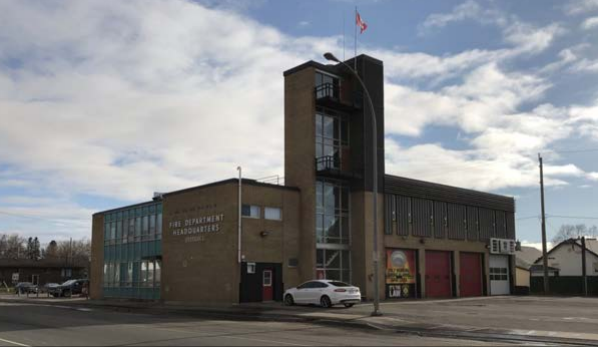THUNDER BAY — Thunder Bay Fire Rescue headquarters on Vickers Street will be decommissioned within several years if city council accepts the recommendation of experts.
The outside consultants hired to prepare the next Strategic Master Fire Plan say the building should be dismantled, and replaced by a smaller two-bay fire hall close to the present headquarters.
Administration staff would be relocated to the Water Street fire station.
"There appears to be a need for a new fire headquarters due to the age and condition of the [Vickers Street] building," the draft report states.
The cost of upgrades is estimated at more than $1 million, "and this only addresses the required repairs; it would not create a long-term fix for the fire department," the consultants conclude.
However, their report also outlines alternative options for realignment of fire stations.
One is to consolidate the Vickers Street and Water Street stations into one fire hall in the vicinity of Central Avenue and Balmoral Street.
The 186-page document will be presented next week to city council, but is not yet scheduled for a vote.
Council is expected to take a few months to consider its 20-plus recommendations.
The consultants found that although the city is not expected to see significant population growth, demands for service from Thunder Bay Fire Rescue could still increase due to an aging population and aging infrastructure.
"TBFR should reassess the locations and use of its present fire stations to find service and cost efficiencies to better utilize its present [eight] fire stations and staffing complement," their report says.
From 2014 to 2018, the call volume increased by 23 per cent, partly driven by more medical calls.
The consultants state "This does not mean that an increase in staffing is required, what it does mean is that wherever possible, call volumes need to be reduced [partly] through...ongoing initiatives with EMS (Superior North Emergency Medical Services) in relation to medical responses."
To help reduce the increasing volumes related to medical responses, the report recommends TBRF consider responding only to the most serious medical calls, such as Vital Signs Absent, and only to calls where there is a time delay for ambulance response due to a lack of available ambulances.
The report also suggests that if the Vickers and Water Street stations are consolidated, one fire crew be split into two "fast response units" for medical calls.
It says this will result in less wear and tear on pumper trucks.
The 2018 BMA Municipal Study of Ontario cities with populations over 100,000 found that Thunder Bay has one of the highest per capita costs for fire services.
The consultants, however, note that due to its geographical location Thunder Bay doesn't have the luxury of relying on nearby full-time fire departments for assistance when needed.
"This fact must be kept in mind whenever fire station and staffing adjustments are considered," the report cautions.
It also references the fact that Thunder Bay Fire Rescue is the provincial/regional response team for specialty responses such as hazardous materials and urban search and rescue.
The release of the report comes as the status of Fire Chief John Hay remains unknown.
City Manager Norm Gale has stated only that he is "out of the office."
Members of city council say they are being kept in the dark about the situation, and that all inquiries about Chief Hay are to be referred to the city manager's office.
Deputy Fire Chief Greg Hankkio is serving as acting Chief.
